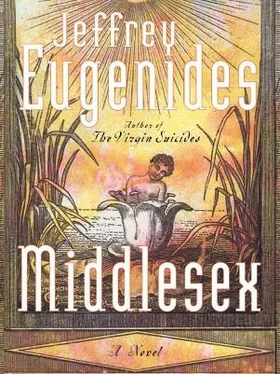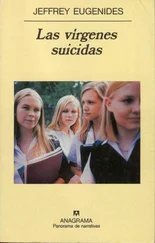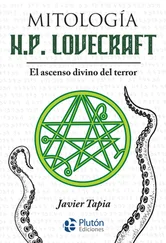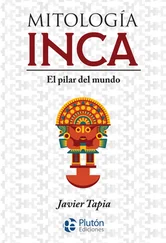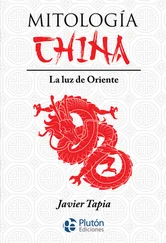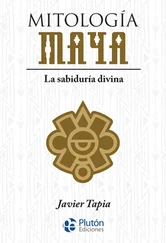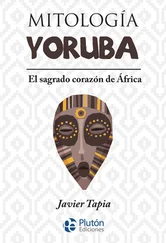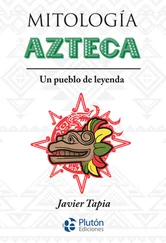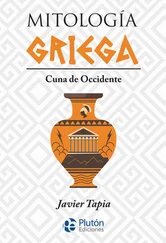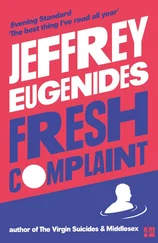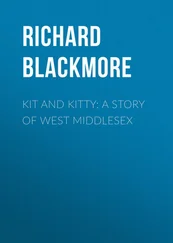Every night Milton called us in our room. Tessie put on a bright voice for him. Milton tried to sound happy when I got on the line. But I took the opportunity to whine and complain.
“I’m sick of this hotel. When can we go home?”
“Soon as you’re better,” Milton said.
When it was time for sleep, we drew the window curtains and turned off the lights.
“Good night, honey. See you in the morning.”
“Night.”
But I couldn’t sleep. I kept thinking about that word: “better.” What did my father mean? What were they going to do to me? Street sounds made it up to the room, curiously distinct, echoing off the stone building opposite. I listened to the police sirens, the angry horns. My pillow was thin. It smelled like a smoker. Across the strip of carpet my mother was already asleep. Before my conception, she had agreed to my father’s outlandish plan to determine my sex. She had done this so that she wouldn’t be alone, so that she would have a girlfriend in the house. And I had been that friend. I had always been close to my mother. Our temperaments were alike. We liked nothing better than to sit on park benches and watch the faces go by. Now the face I was watching was Tessie’s in the other bed. It looked white, blank, as if her cold cream had removed not only her makeup but her personality. Tessie’s eyes were moving, though; under the lids they skated back and forth. Callie couldn’t imagine the things Tessie was seeing in her dreams back then. But I can. Tessie was dreaming a family dream. A version of the nightmares Desdemona had after listening to Fard’s sermons. Dreams of the germs of infants bubbling, dividing. Of hideous creatures growing up from pale foam. Tessie didn’t allow herself to think about such things during the day, so they came to her at night. Was it her fault? Should she have resisted Milton when he tried to bend nature to his will? Was there really a God after all, and did He punish people on Earth? These Old World superstitions had been banished from my mother’s conscious mind, but they still operated in her dreams. From the other bed I watched the play of these dark forces on my mother’s sleeping face.
LOOKING MYSELF UP IN WEBSTER’S
Itossed and turned every night, unable to sleep straight through. I was like the princess and the pea. A pellet of disquiet kept unsettling me. Sometimes I awoke with the feeling that a spotlight had been trained on me while I slept. It was as if my ether body had been conversing with angels, somewhere up near the ceiling. When I opened my eyes they fled. But I could hear the traces of the communication, the fading echoes of the crystal bell. Some essential information was rising from the depths of my being. This information was on the tip of my tongue and yet never surfaced. One thing was certain: it was all connected with the Object somehow. I lay awake thinking about her, wondering how she was, and pining, grieving.
I thought of Detroit, too, of its vacant lots of pale Osiris grass springing up between the condemned houses and those not yet condemned, and of the river with its iron runoff, the dead carp floating on the surface, white bellies flaking. I thought of fishermen standing on the concrete freighter docks with their bait buckets and tallboys, the baseball game on the radio. It’s often said that a traumatic experience early in life marks a person forever, pulls her out of line, saying, “Stay there. Don’t move.” My time at the Clinic did that to me. I feel a direct line extending from that girl with her knees steepled beneath the hotel blankets to this person writing now in an Aeron chair. Hers was the duty to live out a mythical life in the actual world, mine to tell about it now. I didn’t have the resources at fourteen, didn’t know enough, hadn’t been to the Anatolian mountain the Greeks call Olympus and the Turks Uludag, just like the soft drink. I hadn’t gotten old enough yet to realize that living sends a person not into the future but back into the past, to childhood and before birth, finally, to commune with the dead. You get older, you puff on the stairs, you enter the body of your father. From there it’s only a quick jump to your grandparents, and then before you know it you’re time-traveling. In this life we grow backwards. It’s always the gray-haired tourists on Italian buses who can tell you something about the Etruscans.
In the end, it took Luce two weeks to make his determination about me. He scheduled an appointment with my parents for the following Monday.
Milton had been jetting around during the two weeks, checking on his Hercules franchises, but on the Friday preceding the appointment he flew back to New York. We spent the weekend spiritlessly sightseeing, assailed by unspoken anxieties. On Monday morning my parents dropped me off at the New York Public Library while they went to see Dr. Luce.
My father had dressed that morning with special care. Despite an outward show of tranquillity, Milton was beset by an unaccustomed feeling of dread, and so armored himself in his most commanding clothes: over his plump body, a charcoal pinstripe suit; around his bullfrog neck, a Countess Mara necktie; and in the buttonholes of his shirtsleeves, his “lucky” Greek Drama cuff links. Like our Acropolis nightlight, the cuff links had come from Jackie Halas’s souvenir shop in Greektown. Milton wore them whenever he met with bank loan officers or auditors from the IRS. That Monday morning, however, he had trouble putting the cuff links in; his hands were not steady enough. In exasperation he asked Tessie to do it. “What’s the matter?” she asked tenderly. But Milton snapped, “Just put the cuff links in, will you?” He held out his arms, looking away, embarrassed by his body’s weakness.
Silently Tessie inserted the links, tragedy in one sleeve, comedy in the other. As we came out of the hotel that morning they glittered in the early morning sun, and under the influence of those two-sided accessories, what happened next took on contrasting tones. There was tragedy, certainly, in Milton’s expression as they left me off at the library. During Milton’s time away, his image of me had reverted to the girl I’d been a year earlier. Now he faced the real me again. He saw my ungainly movements as I climbed the library steps, the broadness of my shoulders inside my Papagallo coat. Watching from the cab, Milton came face-to-face with the essence of tragedy, which is something determined before you’re born, something you can’t escape or do anything about, no matter how hard you try. And Tessie, so used to feeling the world through her husband, saw that my problem was getting worse, was accelerating. Their hearts were wrung with anguish, the anguish of having children, a vulnerability as astonishing as the capacity for love that parenthood brings, in a cuff link set all its own . . .
. . . But now the cab was driving away, Milton was wiping his brow with his handkerchief; and the grinning face in his right sleeve came into view, for there was a comic aspect to events that day, too. There was comedy in the way Milton, while still worrying about me, kept one eye on the rocketing taxi meter. At the Clinic, there was comedy in the way Tessie, idly picking up a waiting-room magazine, found herself reading about the juvenile sexual rehearsal play of rhesus monkeys. There was even a brand of harsh satire in my parents’ quest itself, because it typified the American belief that everything can be solved by doctors. All this comedy, however, is retrospective. As Milton and Tessie prepared to see Dr. Luce, a hot foam was rising in their stomachs. Milton was thinking back to his early navy days, to his time in the landing craft. This was just like that. Any minute the door was going to drop away and they would have to plunge into the churning night surf . . .
Читать дальше
Конец ознакомительного отрывка
Купить книгу
